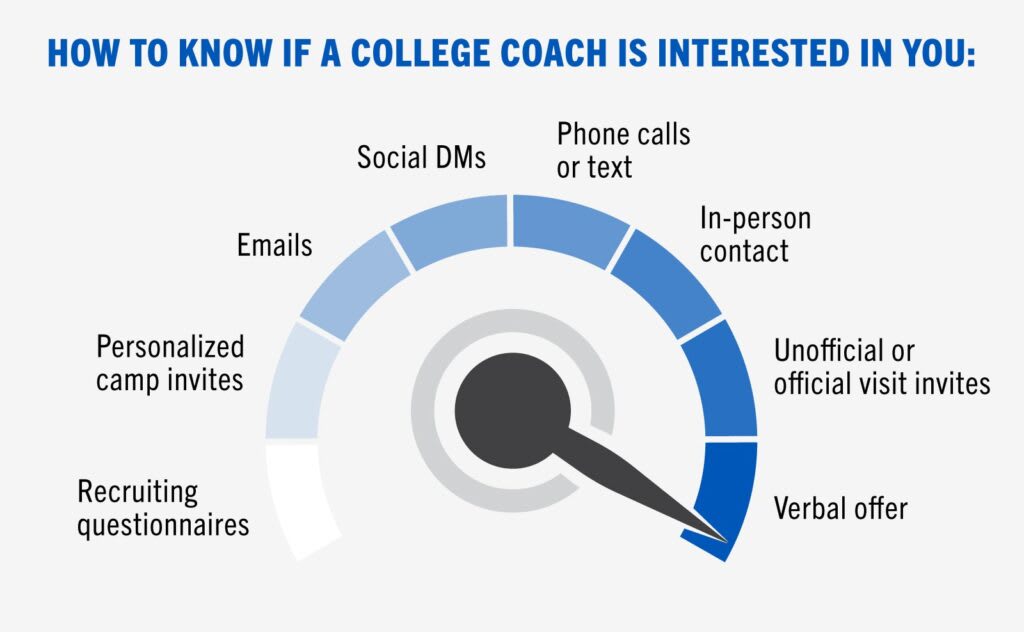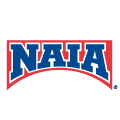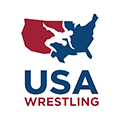What College Recruiting Letters Really Mean and How to Respond

While college athletic recruiting relies heavily on digital communication—like texting, email and social media messages— mailed college recruiting letters still play a major role. However, it can be difficult to interpret what mail from a coach really means. We’ve broken down the different types of college recruiting letters that you might receive and how to respond to each one.
Quick Links
How to know if a college coach is interested in you
In this video, Heather Evans, NCSA Senior Recruiting Coach, discusses how college coaches convey their interest, because it’s not always clear-cut. Recruits should keep in mind that not every coach is going to show their interest in the same way, and even their interest will mean something different depending on the type of program.
Wondering how to know if a college coach is interested in you?

8 common ways coaches show interest in you:
- Recruiting questionnaires. Coaches use questionnaires to gauge your interest in a program, so filling them out—and sending a follow-up email—is essential if you’d like to remain on their list of prospects.
- Personalized camp invites. If a coach specifically mentions that they know who you are or that they’ve watched your highlight or skills video, it’s a good indication that you’re on their list of prospective recruits.
- Emails. Most coaches and athletic staff communicate primarily via email, especially as the initial point of contact, and may ask you for more information regarding your athletics, academics and interest in their school or program.
- Social DMs. If a coach follows you on social media, sends or responds to a direct message, you can be confident that they’ve at least noticed your profile.
- Phone calls or texts. If you’re fielding calls or texts from a coach, chances are you’re relatively high up on their list of recruits.
- In-person contact. If a coach introduces themselves at a recruiting event or at your high-school or asks you for your upcoming high-school, club or event scheduleyou can be confident that they noticed or heard about your athletic abilities.
- Unofficial or official visit invites. Being personally invited for a visit indicates clear interest from a coach. When coaches ask you to go on an official visit, paid for by the school’s program, they’re using their budget to show off their school and create an impressive experience for you as a recruit.
- Verbal offer. Receiving an offer is a huge accomplishment—congratulations! Remember that while a verbal offer may mean you’re a top recruit, it’s also not legally binding yet, and the coach can technically withdraw it for any reason. If you decide to accept a coach’s offer, stay in touch with them up until Signing Day to ensure you still have a roster spot on their team. You can read more about verbal offers here.
How do you know if a college coach is NOT interested in you?
In this video, Gettysburg College basketball coach B.J. Dunne is back to break down how prospects can tell when coaches aren’t interested.
It may seem like a no-brainer, but if you haven’t heard anything from the coach or program, they likely don’t have you on their radar yet or aren’t interested in you as a recruit. While there are a number of ways to tell if a coach is interested in you, what are some things that you should take as an opportunity – but not a sign that the coach has noticed you?
- Admissions materials, like a college brochure or informational email. While you’ll want to review a school to see if it’s a good fit based on your athletic, academic and personal interests, you shouldn’t take these materials as a sign that the coach has you on their list. Instead, use it as an excuse or reason to reach out to a coach letting them know you’ve done some research about their program on your own but are interested in learning more or have some additional questions.
- Generic or mass camp invites. If a coach sends you a generic invite, you may be in the larger pool of athletes who aren’t really on their radar yet. If you’re interested in attending or already registered for the event, make sure you reach out to the coach ahead of time letting them know you’ll be there along with your highlight or skills video, key stats and a short introduction.
- No response to emails, phone calls, voicemails or follow-ups. It’s easy to get discouraged if a college coach doesn’t respond to an initial email or phone call. Before giving up completely, make sure they’re allowed to respond to you per NCAA rules, then send a follow-up email or leave a voicemail. Still no answer? It may be time to move on—and cast a wider net in terms of target schools. The Recruit Match feature on your NCSA profile can help with this – or set up some time to talk to your recruiting coach if you’re an MVP member.
Insider Tip: Coaches may not always have the time or budget to find and evaluate every prospect on their own. If you aren’t receiving the kind of communication you want from a program or coach, proactively reach out to them and show why you would be a great fit!
Brochures, pamphlets and questionnaires
The first piece of mail that you receive from a college coach will likely be general information about the school or a request to complete a recruiting questionnaire. These are known as non-recruiting materials. Depending on your age and division level, this could mean a few different things.
Recruiting questionnaire
A recruiting questionnaire is generally the first request recruits receive from college coaches. These forms are designed to educate the student-athlete on the school and collect some information that the coach can use as they build their list of prospective recruits. Today, recruiting questionaries are typically located online but sometimes they are mailed.
How to respond to a coach request to complete a recruiting questionnaire
If you might be interested in the program, complete the recruiting questionnaire. The earlier, the better. If you’re an upperclassman, contact the college coach to let them know that you filled out their questionnaire and are very interested in the program.
Learn how to use recruiting questionnaires in the recruiting process
NCAA Division I and Division II: DI and DII coaches can’t send recruiting materials to athletes before June 15 after sophomore year or September 1 of junior year, depending on your sport. To spark an underclassman’s interest in the program, they’ll often send general information about the school and a recruiting questionnaire. If you’re a junior or senior receiving general school information, you’re probably not being heavily recruited yet, and you need to put in the work to really get their attention. Below is a sample of a recruiting letter you may receive from a college coach.
Recruiting letter sample:
Dear Pat,
Our recruiting is on a national level and we are looking for talented students who can meet the high-level athletic and academic demands of a challenging program. Please complete the enclosed questionnaire and return it as soon as possible. Include a schedule of events where you will be competing. If you have video available you may send it to us at your convenience.
Your next move: Complete that questionnaire! As an underclassman, ask your current coach to reach out to the college coach and set up a call. Remember: Even if coaches aren’t allowed to communicate with you, you can always reach out to them. As an upperclassman, if you are extremely interested in the school, definitely contact the coach. Let them know that you received the school information and filled out their questionnaire, and you are very interested in their program.
NCAA Division III and NAIA: DIII and NAIA coaches are not restricted in when they can send athletes recruiting material. However, these coaches often send out general information about the school to athletes they are recruiting. Coaches at these division levels want to ensure that their school is a great fit for an athlete from an academic and cultural fit before they start recruiting them.
Your next move: If you receive general information from a DIII or NAIA school, take it as an invitation to contact that coach. Send an introductory email to set up a call. Even if you aren’t sure about the school, it’s always better to explore all options to find your best fit!
An invitation to a camp
If you received a personalized camp invitation, that’s a clear sign that you are getting recruited by that coach. Personalized camp invitations may be a little tricky to spot, however. Football Head Recruiting Coach Joe Leccesi explains that if the coach has mentioned your highlight video or viewed your profile, these are good indicators that they are personally inviting you to the camp. Overall, see if the coach has gone beyond just saying “come to my camp,” Coach Leccesi advises.
Recruiting letter sample:
Dear Kelli,
I’d like to personally invite you to our upcoming camp, Tuesday, July 17 from 10am to 2pm. We enjoyed watching your skills video, and would like to watch you compete in person at our camp to discovered if you’d be a good fit for our program. Feel free to call our office with any questions or to request more information: 567-555-6767(O).
Your next move: In this example, it’s clear that the coach is interested in the recruit, and would like the opportunity to watch Kelli compete in person. She should respond to the email to thank the coach for the invite and let them know if she will be able to make it to the event. If she can’t go, she needs to include a schedule of her upcoming games and tournaments so the coach can find another time to watch her in person.
Dear Allison,
I’d like to personally invite you to our upcoming camp, Tuesday, July 17 from 10am to 2pm. This is a great opportunity for our coaching staff to evaluate recruits and find future Bulldogs to join our team. Please see below for more information.
Your next move: This letter is primarily an invitation to the camp. The coach hasn’t given out a phone number or mentioned any specifics. That said, effort is being made to evaluate Allison, so if she’s interested in that school, she should be sure to fill out the recruiting questionnaire (if she hasn’t already). She also needs to respond to the email letting the coach know if she’ll make it to the camp and include her highlight/skills video and link to her NCSA recruiting profile.
Personalized college recruiting letters

When a college coach takes the time to send a handwritten recruiting letter, it’s a clear sign that the recruit is high-valued. However, don’t take this gesture to mean that the recruit will receive an offer. Until a recruit has an offer in hand, they still need to prove to the coach that they would be a great addition to the team.
How to respond to a personal letter from a college coach
The best way to respond to a handwritten letter is with another handwritten letter. Write a simple thank you note, acknowledging that you received their letter. Recruits should also follow up with a phone call to let the coach know they appreciate their message and that they are interested in the program.
Recruiting letter sample:
Dear John,
You have been identified as an athlete who may have the potential to contribute to our college program. We are interested in the possibility of you becoming a student-athlete at our school. Please send us your competition schedule so that we can arrange to evaluate you in person. Feel free to call me with any questions at 345-777-7777(H), or 544-666-7777(O).
Your next move: John should reply to the message as soon as possible, making sure he includes his upcoming schedule. He should also follow up with a phone call, and try to arrange a campus visit.
Handwritten college recruiting letters, customized graphics and personal contact information
If you’re receiving handwritten college recruiting letters and custom graphics, that’s a clear sign you are a high-value recruit. Congratulations! By sending you personalized mail, the coach is trying to impress you and show that you are high on their list of recruits. However, this is not the time to coast! You still have to show the coach why you would be a great addition to their team.
Recruiting letter sample:
Dear Chris,
Our staff has identified you as one of the top junior recruits this year. We enjoyed watching you compete in San Diego. With the graduation of 11 seniors from this year’s team, we are interested in and are in need of bright young athletes to carry on our tradition of excellence.
Please fill out the attached player profile as fully as possible. We look forward to seeing you compete again soon. If you have any questions, please contact me directly at 345-009-4545(H), 345-777-7777(H), or 544-666-7777(O).
Your next move: Thank the coach for their letter and/or the graphics. Ideally, respond with a handwritten letter. If the coach gave you their phone number, give them a call or text to let them know you received their message and appreciate the letter and you are very interested in their program.
Conclusion
When coaches recruit in-person and show up to events, it’s not too difficult to spot them and pick up on their interest in you. But, with recruiting moving mostly online, it can be a little harder to determine whether a coach is genuinely interested in you. Don’t be afraid to send an email or pick up the phone to create an open line of communication with college coaches and determine whether you are the right fit for their program. Check out our guides on emailing and calling coaches. And if you need help, reach out to us – click here for more information on how to upgrade your profile for more personalized guidance and group workshops.
















